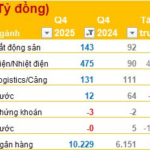
Illustrative Photo: AFP/TTXVN
In an interview with MBC Masr, an Egyptian satellite television channel, Mr. Hassan Fawzy, head of the Coffee Department at the Cairo Chamber of Commerce, said that the price of coffee in the Egyptian market, a country dependent entirely on imported coffee, has risen to 900 EGP (over 29 USD) per kg. According to data from the Central Statistical and Mobilization Organization of Egypt, the prices of coffee, tea, and cocoa in the country in December 2023 increased by 57.9% compared to the same period in 2022.
Mr. Fawzy identified three main reasons for the sharp increase in coffee prices in Egypt, stating that coffee prices would decrease by 40% if these factors were addressed. He highlighted the impact of the USD exchange rate on the parallel market (black market) on commodity prices. Officials at the Cairo Chamber of Commerce further stated that traders often have to source USD from the parallel market as they cannot receive USD from banks, which significantly affects import costs.
Egypt is currently facing a severe foreign exchange shortage, primarily of USD, causing the value of the greenback to spike on the parallel market. Recently, one USD exchanged for 72 Egyptian pounds (EGP) on the parallel market before dropping to 55 EGP/1USD on February 4, while the official exchange rate is 1USD for 31 EGP.
Mr. Fawzy also pointed out that transportation costs have doubled due to increasing tensions in the Red Sea. Tensions in the Red Sea have escalated as Houthi forces in Yemen continue to attack commercial vessels in this area and the strategic Bab El-Mandeb Strait. He stated that coffee prices on the international market have also risen significantly lately, directly impacting Egyptian businesses and consumers. According to Mr. Fawzy, coffee production in exporting countries has decreased by 15%.
Experts believe that the decline in coffee production is due to global warming, posing a clear threat to the global coffee supply. With increasing temperatures and changing rainfall patterns in key coffee-producing regions such as South America, Central Africa, and Southeast Asia, the coffee industry is facing unprecedented challenges. According to an article published in the journal Science of the Total Environment by agricultural scientist Cássia Gabriel Dias, between 35-75% of the coffee growing area in Brazil, the world’s largest coffee producer, may become unusable by the end of this century.












